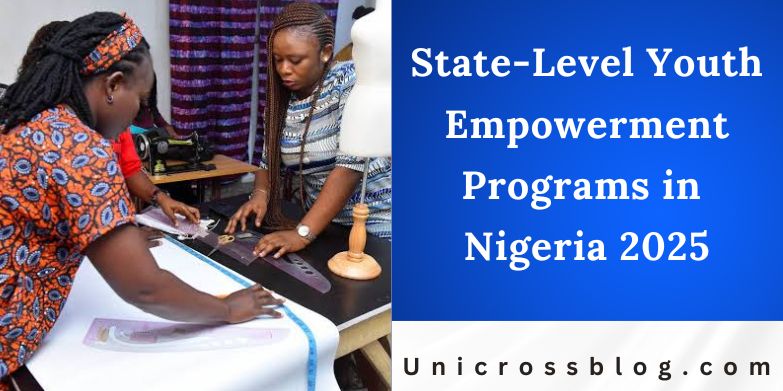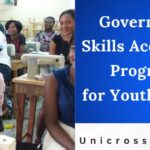Nigeria, Africa’s most populous nation, stands at a pivotal juncture in 2025, where its youthful demographic, over 70% of the population under 30, represents both an immense opportunity and a pressing challenge. With youth unemployment hovering around 40%, economic pressures from inflation and global shifts have amplified calls for targeted interventions. State-level youth empowerment programs have emerged as vital engines of change, complementing federal efforts by addressing localized needs in skills training, entrepreneurship, and social inclusion. These initiatives, often funded through state budgets and partnerships with NGOs, aim to equip young Nigerians with practical tools for self-reliance, fostering innovation in sectors like agriculture, ICT, and creative industries.
In 2025, amid the Renewed Hope Agenda, states are scaling up investments in youth development to drive sustainable growth. Programs focus on vocational training, micro-financing, and leadership building, recognizing that empowered youth can reduce poverty, curb unrest, and propel Nigeria toward its Vision 2050 goals. This overview explores key state-led programs, highlighting their design, impact, and role in building a resilient future. By decentralizing empowerment, these efforts ensure relevance to regional contexts, from the tech-savvy urban hubs of Lagos to the agrarian communities of the North.

Key State-Level Youth Empowerment Programs in 2025
1. Lagos State: Lagos State Employment Trust Fund (LSETF) Youth Empowerment Scheme
Lagos, Nigeria’s economic powerhouse, continues to lead in youth initiatives through the Lagos State Employment Trust Fund (LSETF), which in 2025 allocates over ₦5 billion for youth-focused grants and training. The scheme targets unemployed graduates and artisans aged 18-35, offering low-interest loans up to ₦5 million for startups in digital services, fashion, and agribusiness. A standout feature is the Digital Skills Bootcamp, training 10,000 youths in coding, data analysis, and e-commerce, with 60% female participation to bridge gender gaps.
The program’s success stems from its integration with Lagos’ tech ecosystem, partnering with hubs like CcHUB for mentorship. In the first half of 2025, it created over 15,000 jobs, with alumni launching ventures like mobile app development firms that export services regionally. Challenges include urban overcrowding, but LSETF counters this with mobile training units reaching peri-urban areas. This initiative not only boosts employability but also positions Lagos as a youth innovation capital, contributing 30% to national GDP through empowered entrepreneurs.
2. Plateau State: Plateau Youth Skills Acquisition and Empowerment Programme (PYSAEP)
In the North-Central region, Plateau State has earmarked ₦2 billion in its 2025 supplementary budget for the Plateau Youth Skills Acquisition and Empowerment Programme (PYSAEP), emphasizing rural revitalization. Targeting 5,000 youths from its 17 local government areas, the program runs month-long batches in ICT, fashion design, leatherwork, and agribusiness, with stipends and startup kits provided upon completion.
Governor Caleb Mutfwang’s administration highlights PYSAEP’s role in deradicalization and food security, training participants in sustainable farming techniques amid climate challenges. The Joseph Gomwalk ICT Centre, donated by the state, serves as a hub with federal support for fiber optic expansion, enabling remote learning. Early 2025 results show 70% of trainees launching micro-enterprises, reducing youth migration by 25% in pilot LGAs. By blending vocational skills with entrepreneurship, PYSAEP fosters community-led growth, turning idle youth into wealth creators in a region prone to conflicts.
3. Bauchi State: Nigerian Youth Skills Empowerment (NYES) Program
Bauchi State, in the Northeast, adapts the federal NYES framework into a state-specific model, focusing on post-insurgency recovery. The 2025 iteration, managed by the Ministry of Education, aims to skill 3,000 out-of-school youth in vocational trades like welding, tailoring, and solar installation, with a ₦1.5 billion allocation. Eligibility prioritizes ages 15-25 from vulnerable communities, offering free certification and job placement linkages.
NYES addresses Bauchi’s 50% youth illiteracy rate by incorporating literacy modules, partnering with local NGOs for outreach. In Q1 2025, it empowered 800 participants, with 40% securing apprenticeships in renewable energy firms. The program’s mobile clinics reach remote villages, promoting gender inclusion; women comprise 45% of enrollees, trained in agro-processing to enhance household incomes. This initiative not only rebuilds human capital but also stabilizes the region, aligning with national de-radicalization goals.
4. Cross River State: Calabar Youth Digital and Creative Hub Initiative
Southeast’s Cross River State leverages its tourism heritage through the 2025 Calabar Youth Digital and Creative Hub, funded at ₦800 million. This program trains 2,000 youths in creative industries like filmmaking, graphic design, and event management, with hubs in Calabar and Ogoja providing equipment and incubation spaces.
The initiative responds to the state’s 35% youth unemployment by tying skills to the creative economy, projected to grow 15% nationally. Partnerships with federal bodies like the iDICE program offer stipends and market access, enabling graduates to produce content for global platforms. By mid-2025, it generated 500 freelance gigs, boosting local festivals like Calabar Carnival. Emphasizing inclusivity, it reserves 50% slots for rural and disabled youth, transforming cultural assets into economic drivers.
5. Kano State: Kano State Youth Entrepreneurship and Agricultural Empowerment Scheme (KAYEAS)
In the commercial North, Kano State’s KAYEAS allocates ₦3 billion in 2025 to empower 7,000 youths in agriculture and trade, focusing on value chains like rice milling and textile production. Participants receive seeds, tools, and ₦200,000 grants after three-month training, targeting ages 18-30.
KAYEAS tackles seasonal unemployment by integrating climate-smart farming, with 30% women-led groups. State data shows a 20% rise in youth farm outputs in 2025, enhancing food security. Collaborations with SMEDAN provide market linkages, turning trainees into exporters. This program exemplifies northern states’ shift toward agro-industrialization, reducing poverty in densely populated areas.
6. Enugu State: Enugu Youth Innovation and Leadership Programme (EYILP)
Enugu’s EYILP, with a ₦1.2 billion 2025 budget, nurtures 4,000 youths through leadership workshops and innovation challenges in tech and health. It features hackathons and mentorship from alumni networks, prioritizing STEM graduates.
The program fosters civic engagement, with participants advocating for state policies. In 2025, it launched 200 startups, attracting private investments. By emphasizing ethical leadership, EYILP builds a cadre of change-makers, addressing governance gaps in the Southeast.
These programs, varying by regional priorities, collectively aim to skill 50,000+ youths in 2025, promoting equity and innovation.
READ ALSO: Top 10 Youth Programs That Build Academic Success
FAQs
Who is eligible for most state youth empowerment programs in 2025?
Typically, Nigerian citizens aged 18-35, unemployed or underemployed, with basic education. Priority often goes to women, rural dwellers, and vulnerable groups; check state-specific criteria.
How do these programs fund startups or provide skills training?
Through grants, low-interest loans (₦100,000-₦5 million), stipends during training, and startup kits. Training covers vocational, digital, and entrepreneurial skills, lasting 1-6 months.
Are there gender-specific components?
Yes, many reserve 40-60% slots for women, offering tailored training in female-dominated sectors like agro-processing and fashion to promote inclusion.
How can one apply for these programs?
Via state ministry websites or local government offices; applications open seasonally, requiring ID, CV, and proposals. Deadlines vary, e.g., PYSAEP batches in September.
What impact have these programs had so far in 2025?
Over 30,000 jobs created, 20% poverty reduction in pilot areas, and increased female entrepreneurship, per state reports.







